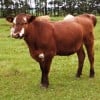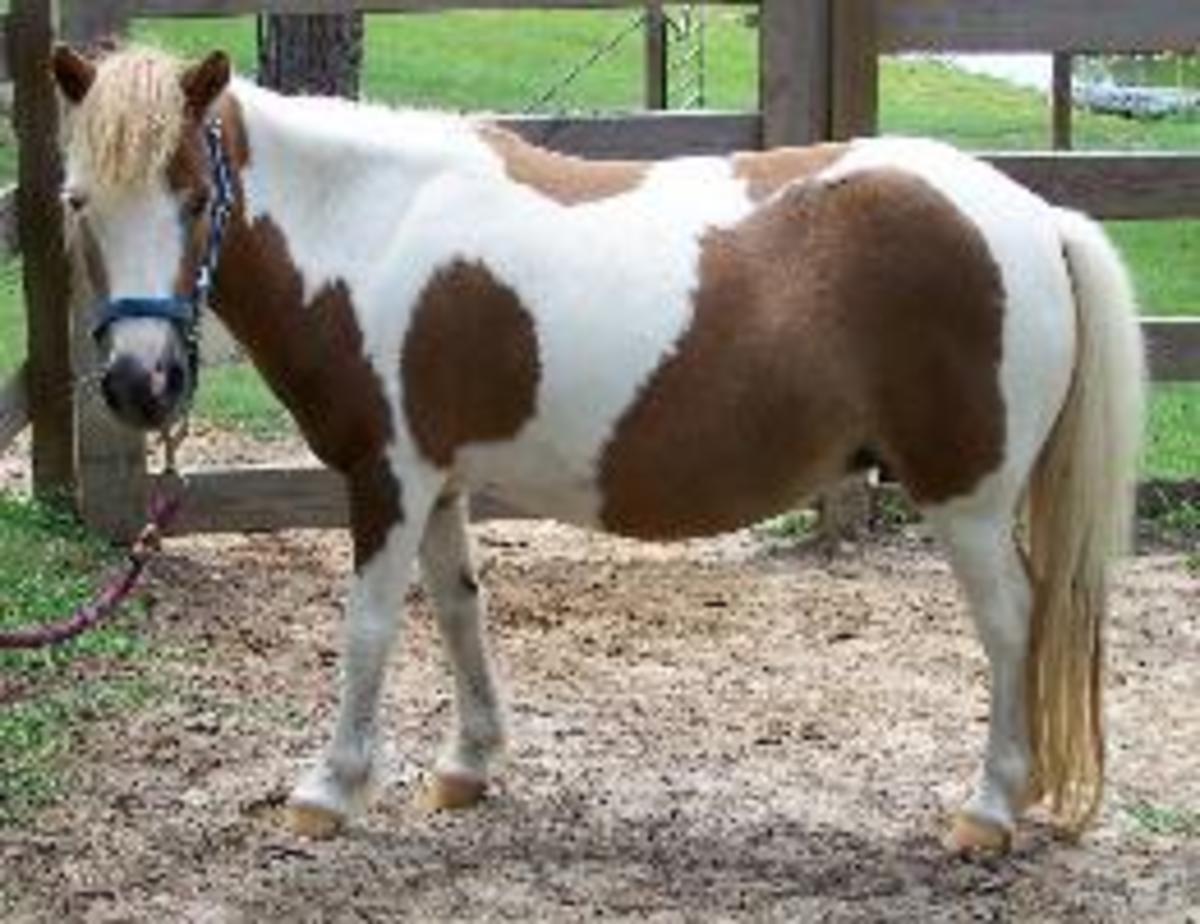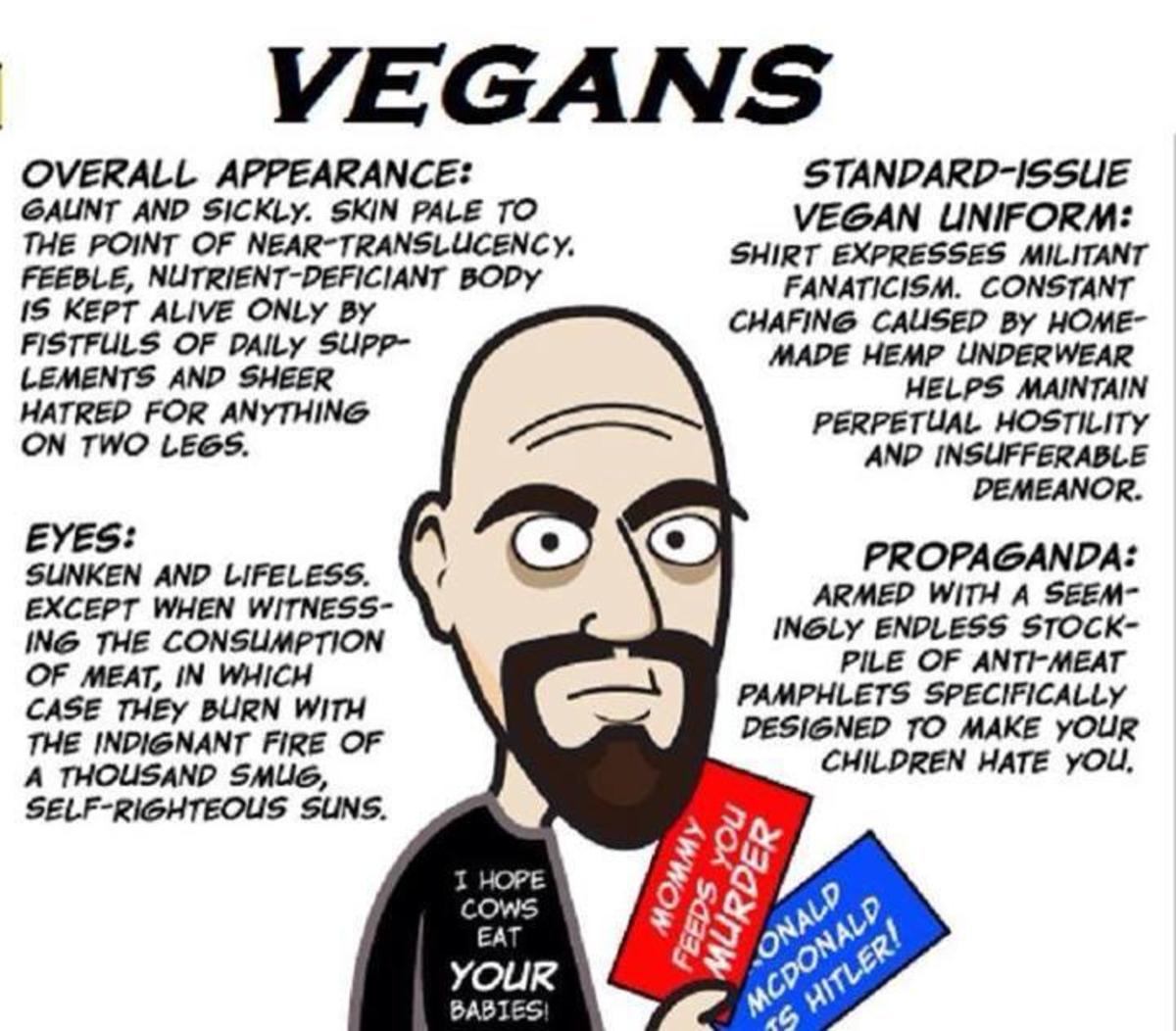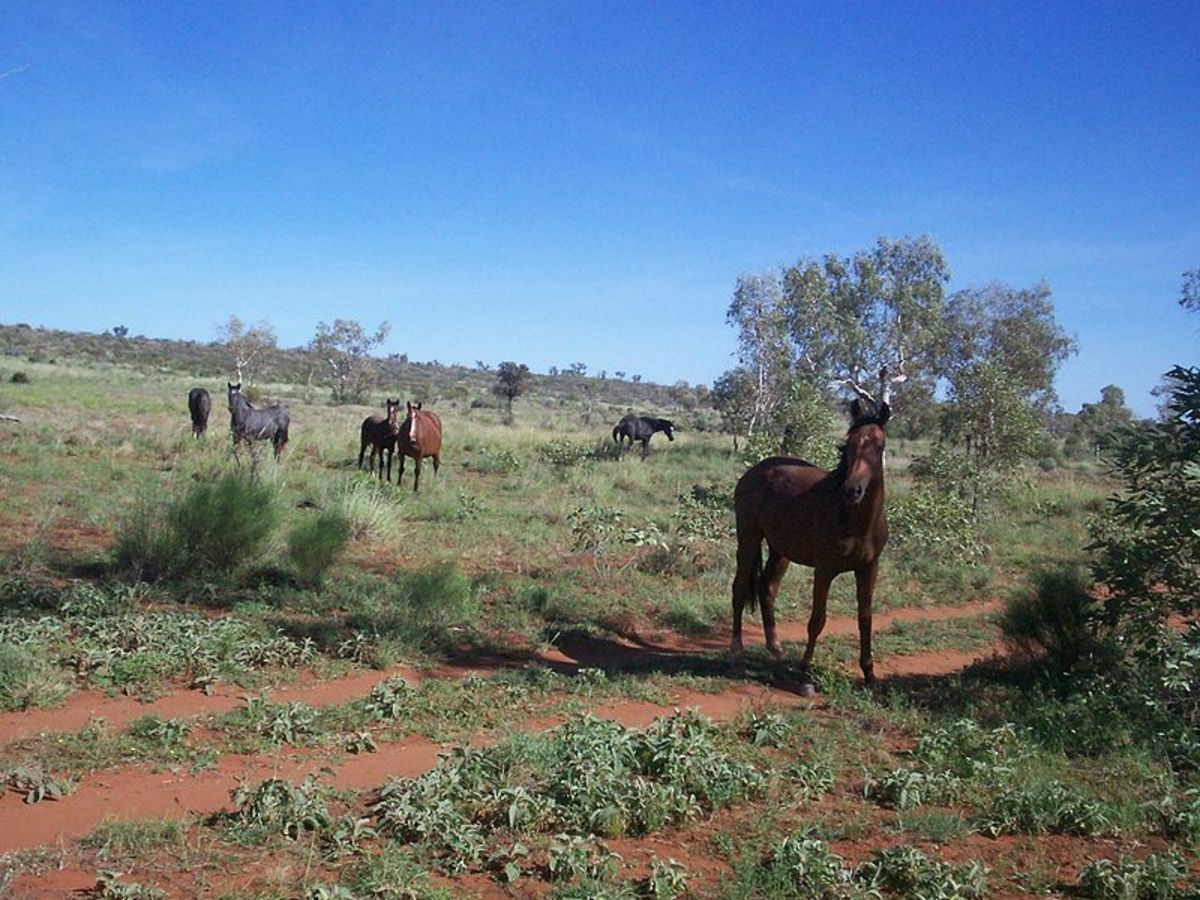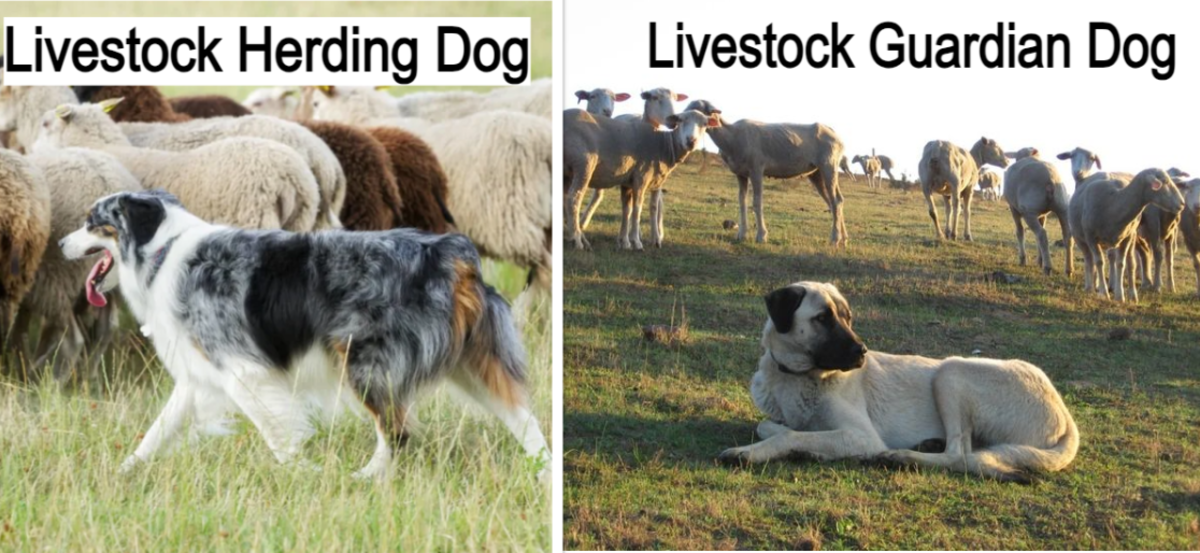The Vegan vs. Omnivore Debate Part 1
It's an On-Going Battle
This vegan vs. omnivore sparring is an ongoing debate that seems to have no end in sight. You can see this debate occurring on many Internet discussion forums, in the comments sections on news articles online magazine articles, hubs, blogs, and of course due to the opinion expressed by authors (like myself) writing hubs or blogs like this and many others. A lot of the debates I have gotten involved in occurred either in discussion forums, question and answer sites, and even comments of hubs like this and others I've written. Most vegans I've sparred with seem to base their arguments more on their emotions and from reports of little value, with, what I see as mostly inaccurate research to back them up. (Some aren't as dumb though--I've come across several that have done their research and laid the facts on the table as they see fit, so I'll give them credit for that.) I often find just as many people on the omnivore-side of this debate that either do not have enough gumption to have a strong argument in debates against "the other side," or they cannot come back with adequate research and evidence to use to attempt to win a debate against various claims that put a bad light on omnivores, not to mention animal agriculture itself.
There are three main things that vegans and omnivores clash over: greenhouse gas emissions, animal agricultural practices, and the digestive tract in humans. And all three of these topics have been discussed over and over again, to the point where I admittedly do get tired of them since it really ends being beating a dead horse, but I would like to shed some light on the facts behind the claims in a multi-part series.
Greenhouse Gass Emissions from Livestock: Is it as Big a Deal as People Make it Out to Be?
I was asked a while ago about beef being a major cause of global warming since, "cows' methane emissions are neck-and-neck with carbon emissions at cooking Mother Earth?" And, "If everyone on earth became vegetarian, decreasing the demand for gas-producing cattle, would that help?" Ever since I read Livestock's Long Shadow, and some reviews of what the FAO had to say about livestock methane and carbon emissions, including one from one of my favorite hubbers, I have come up with my own conclusions.
If you see Table 3.12 in Chapter 3 in Livestock's Long Shadow (Section 3.4: Summary of Livestock's Impact) on page 113, you will notice that this chart summarizes all that has been covered in the previous sections of that chapter. Now I have done some calculations on the methane portion of the chart (as well as the other two GHG's), and have come up with an answer that strongly disproves the claim made by the first quote above: Of the Grand Total Anthropogenic (human activities) GHG emissions, which is 40 billion tonnes of CO2 equivalent, methane emissions from livestock only contribute to 5.5% of that grand total. According to the table, total methane emissions from livestock (enteric fermentation and manure management) accounts for only 2.2 billion tonnes CO2 equivalent, whereas total anthropogenic methane emissions comprises of 5.9 billion tonnes of the grand total (14.75% methane contribution). That is a HUGE difference, far from being equal with total carbon emissions. Speaking of which, CO2 emissions from livestock only contribute to 0.4% of the grand total of anthropogenic emissions. Total anthropogenic CO2 emissions, on the other hand, is 31 billion tonnes, which contributes to 77.5% of all CO2 emissions. Well, the person who said that should be eating their words by now.
It is obvious from above that people make a big deal out of something so trivial. Going vegan simply because of misinformation, or fictional facts that are made to make the animal agricultural industry a sinful thing, including effects on global warming, is like trying to become a farmer simply because of the misconception that country life so much more peaceful and quieter than the big city. Those things, in themselves, are absolutely laughable! One has to get their facts straight before they get into an argument, otherwise it's going to come back and bite them in the ass. Getting emotionally involved doesn't help matters either. This is where a lot of brainwashing occurs, as people nowadays tend to put their emotions first before the facts.
Now for the second quote, I had already written a response to that and I would like to post it again here:
"...it has many variables and is a very complex question, unable to be simply answered by a yes or a no.
"If everyone became vegetarian thus decreasing the demand for gas-producing livestock (not just cattle), it would and it wouldn't help.
"The reason it might help is economics. Less demand for red meat and dairy products, the less supply there needed in the market. Less supply means less cattle are being raised for slaughter and dairy production, thus reducing methane emissions. Less cattle also opens up land that had been used for forage production to be used for vegetable and crop production instead.
"But in reality, it is not that simple. Thus the "no" part. There are large tracts of land that cannot be used for producing crops and vegetables, but instead are much better suited to raising cattle, sheep, goats and other livestock. There happens to be much more of this type of land than the land available for crop production. Also, the land that is also great for producing fruits, vegetables and grains is also great for cities and towns to expand on. There has been a fierce war going on over this for a very long time. Only in a realistic world would it have no variation in soil type nor topography so that all crops can be grown on all land, which seems to be stuck in many a vegan's mind when it comes to fighting against animal agriculture of any sort (no offence).
"The second part of the argument is the fact that we humans are not biologically built as herbivores as ruminants are. We have digestive tracts very similar to pigs and bears, which are omnivores. Thus, this limitation also limits the parts of plants that we can eat. Lets take corn as an example. We can only eat 5% of the corn plant: the kernels, and this has to be at the right stage of growth. We cannot eat the corn plant during any of it's growth stages. A herbivore can and will happily do so. The same goes for other cereal grains including wheat, barley, oats, rye, canola, peas, beans, etc. We also cannot eat all parts of vegetables either: potatoes, tomatoes, carrots, celery, cauliflower, broccoli, etc. Though there is a method of producing "green manure" through composting plant matter, this does not produce the nutrients nor faster break-down of plant matter into manure than through the gut of a herbivore. This is the more efficient and economical means of using plant matter, especially the parts and types of plants that we do not nor cannot eat. According to my previous argument, since there is only a small percentage of land that can be used for crop production, grass and legumes are able to grow on the rest of the land that is not useable for crop production. The only way to "harvest" these tough plants is to either have livestock graze in those areas, or form larger wildlife habitats on that type of land.
"My third reason for not agreeing to the world-wide switch to veganism is water. If you think livestock "waste" so much water, you should see how much water we humans waste on a daily basis. We do not use water simply to drink it or to put into food production, but we also use it to water our pretty lil' lawns, for large industrial purposes from oil and gas to construction, to mix with fluids for many purpose other than personal consumption. Livestock only use water to drink it and cool themselves in. Pets only use water to drink and cool and bath in. Less livestock means more excuse for the corporate companies to waste it.
"Fourthly, is we have relied on the use of animals for as long as we started finding other means of using parts of the animal that we don't eat. And this has expanded greatly to the point were the general population don't even realize it. If the population of livestock decreased, we would have to find other means of making our tires work and wear like they do, our cosmetics as nice as they are, our mattresses, chairs, couches, love seats etc. have the lovely comfy fabric and parts to them like they are, among many other things.
"If we lessened our consumption of livestock purely on the fact that they produce too many farts and burps that harm our atmosphere, then we must have completely lost our minds. There are many other things we can do to decrease the production of methane from cattle than just stopping eating them.
As you can see, this issue with greenhouse gas emissions and the livestock industry shouldn't be made such a big deal out of. There are more important things to worry about right now.
